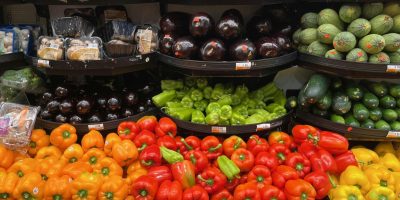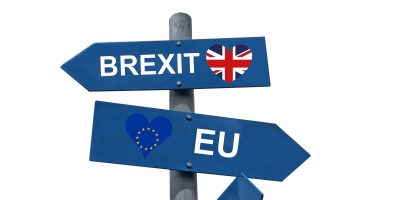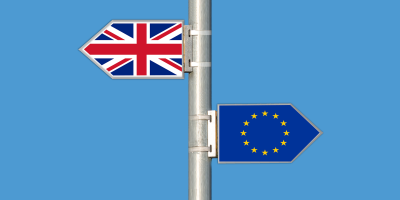
To this day, Brexit continues to have a major impact on the transport and logistics sector. In the recent Flows magazine, Hylke Vandenbussche, professor of international economics at KU Leuven, says there are only losers in this story.
Customs saw a lot of changes over the past decade. One of the most drastic changes brought the Brexit. The United Kingdom (UK) was once a steady trading partner for many European countries. Britain was even Belgium’s fourth largest trading partner. The Brexit referendum in 2016 put an end to that, when a narrow majority decided to leave the customs union. Yet it took several more years for the Brexit to actually take effect. On 1 February 2020, it was then. The Brexit brought an avalanche of changes, including red tape, time-consuming inspections and long waits at border crossings. Even today, those challenges continue to take a heavy toll on freight traffic between Europe and the UK.
“One of the main consequences is the sharp drop in imports from European countries to the UK,” says Hylke Vandenbussche, professor of international economics at KU Leuven. “The reverse is also true: exports from the UK to Europe have fallen. It could hardly have been worse. Car exports to the UK, for example, collapsed after the Brexit. This was partly offset by the chemical sector, especially pharmaceuticals, especially in 2021. Nevertheless, total exports in May 2023 were still 16% lower than the previous year.”
Other trade flows
At the same time, shifts in trade flows can also be observed. For example, UK imports from countries such as China, Norway and Russia have increased. “After the Brexit, the UK entered into around 60 new rollover deals, continuing trade relations with countries as they were during EU membership.”
According to Vandenbussche, it is not always easy to separate the impact of the Brexit from the COVID-19 pandemic. “Covid also crippled the transport and logistics sector internationally. But in terms of Belgian exports to countries like China or the United States, we do see growth there. From this we can deduce that the decline in exports to the UK is indeed due to the Brexit.”
In the bilateral trade relationship between the UK and Europe, she says, there are only losers. “That has created opportunities for countries outside this conflict, which managed to capture the UK market, differentiating themselves in terms of quality and prices. People don’t change their supplier networks overnight. It takes time, but shifts in data are clearly noticeable.”
Positive consequences
So are there no positive consequences to the Brexit at all? According to Vandenbussche, initially for the service sector, it was not a bad thing. “Many UK companies in the services sector set up branches in continental Europe at the time of the Brexit referendum. In the services sector, it is relatively easy. All you need is a computer and people’s knowledge. There is no need to move factories. The same goes for the financial sector, which left London and moved elsewhere in Europe – Paris, Amsterdam and Frankfurt. But the relatively favourable effects in the early stages have not been able to make up for the losses in goods trade.”
Holes in agreement
The Brexit was also a lengthy process. The referendum took place in 2016, but it took until 2021 for the Brexit to actually take place. According to Vandenbussche, this was because of the many holes in the agreement.
“It was clear from the beginning that this would lead to potentially conflicting situations. Today, we have a relatively stable situation thanks to the Windsor Framework of 2022. A solution has been found to the Irish issue by creating a kind of administrative ‘green’ and ‘red’ avenue for goods from Britain. This eliminates the need for strict controls if the goods are destined for the Northern Irish market. Only goods exported to the European market will remain subject to extensive customs controls. This was just one of many breakdowns encountered after the agreement was signed. The agreement was also far from conclusive on services. That explains why service companies set up branch offices early in the negotiations to avoid problems around homologation and diplomas by being present within EU regulations,” she continues.
The Brexit did set something in motion, Vandenbussche concludes. The ranks were relatively closed after Britain left the customs union. “Unity was preserved because there was a common enemy. Since the Brexit, there have been so many developments that we can no longer speak of a European front. Everyone tensely wonders whether that cohesion will be preserved.”




